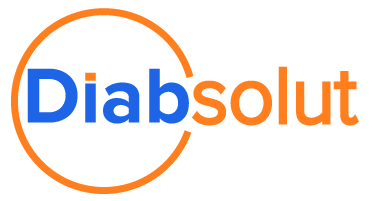AI Ethics: What Is It and Why Does It Matter?
Author: Stephen Sugumar
 Join me as we embark on a journey through the intricate realm of AI Ethics. With Artificial Intelligence (AI) dominating headlines and permeating various facets of our lives, it’s crucial to navigate this complex landscape with awareness and understanding. The ethical dimensions of AI shape our present and future societies, influencing everything from employment practices to healthcare and beyond.
Join me as we embark on a journey through the intricate realm of AI Ethics. With Artificial Intelligence (AI) dominating headlines and permeating various facets of our lives, it’s crucial to navigate this complex landscape with awareness and understanding. The ethical dimensions of AI shape our present and future societies, influencing everything from employment practices to healthcare and beyond.
As we navigate this ever-evolving landscape, questions abound: How do we ensure fairness and equity in AI systems? What are the ethical implications of AI deployment in diverse contexts? Who are the stakeholders involved, and how can their interests be balanced? As we delve into these pressing issues, our aim is clear: to pave the way for a future where AI serves humanity’s best interests while upholding fundamental ethical principles.
In the forthcoming article, we’ll explore these questions and more, offering insights and perspectives to help you navigate the complex world of ethical artificial intelligence.
❓ What is AI ethics?
- AI Ethics involves ensuring minimal bias, with a target to have no bias at all within the underlying foundation AI is built on, therefore conforming to standard principles of fairness and value.
- Just like any other technology, there are legal limits and principles AI must adhere to: delving into humane considerations to guarantee accessibility and equality for all, and recognizing that we are all both consumers and producers influencing its trajectory.
- The inherent potential for ethical dilemmas in AI lies within the intent and purpose of the development of the technology; proactively moderating and controlling the weight and outcomes of these ethical considerations is imperative to mitigate risks and ensure responsible AI deployment.
❓ Who are the stakeholders within ethical AI?
- AI initially gained traction primarily within academic and research circles, where stakeholders and entities have traditionally operated under regulation within their respective domains.
- With AI’s growing popularity in private and non-profit sectors, technology is increasingly shifting into the hands of its creators and producers, often with minimal oversight.
- Governments and intergovernmental entities have been historically slow in adopting technology, but they must integrate AI into their operations to grasp its capabilities fully. Simultaneously, establishing oversight committees is essential to maintain fairness and equality.
❓ What are the challenges faced within ethical AI?
- AI Bias presents a significant challenge, as the perspectives embedded in AI systems largely reflect those of their creators. Political bias, already evident in the ecosystem, poses a particular concern, potentially leveraging AI to reinforce political biases.
- Privacy emerges as a major obstacle. AI’s need for extensive data and historical information to generate accurate outputs and value raises concerns about monitoring and limiting data privacy. This issue is compounded by existing challenges within the broader technological landscape.
- Environmental impact poses yet another challenge. The substantial processing power and energy requirements of AI raise environmental concerns. While there are proposed solutions within the ecosystem, further scrutiny is necessary to ensure sustainability.
Next steps
If you have any solution questions at all, feel free to reach out. Our team is happy to walk you through how various solutions can address use cases, pain points, goals, or anything else you need — to help find the right solution for your business. We also offer custom demos of Salesforce and Certinia solutions.
You can also keep on top of solution information and insights by following the Java with Sugar podcast page on LinkedIn. We’ve covered some great topics so far!
Search
Trending Topics
- Professional Services Challenges in Today’s Business Landscape
- How Managed Services Drive Success – The Diabsolut Advantage
- Facing Challenges? Here’s How to Overcome the Top 5 Pain Points
- Understanding Personas to Improve Your Implementation of Software Solutions
- E24: SFS Roadmap Improvements for Each Persona – Java With Sugar Podcast
- Contractor Management: Building and Managing an Effective Field Service Workforce
- E23: How Salesforce Field Service Applies to Each Persona – Java With Sugar Podcast
- E22: Introduction to Field Service Personas – Java With Sugar Podcast
- The Role of Customer Success in a Professional Services Organization: A Path to Achieving Business Goals
- Addressing Customer Success Challenges in Today’s Market
